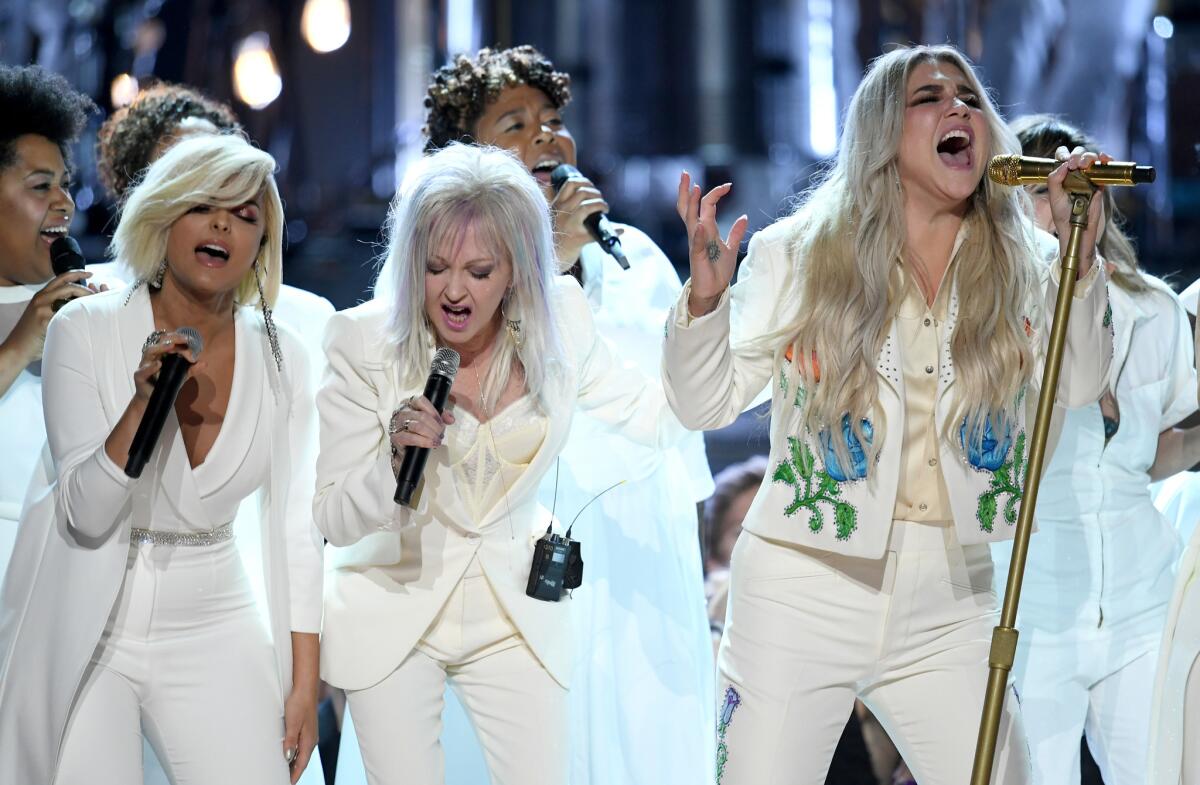Recording Academy addresses female representation: ‘It’s not enough to reflect the community’

- Share via
In the weeks since the 60th Grammy Awards, the Recording Academy has been embroiled in a firestorm amid questions about the relevance of the organization tasked with bestowing music’s highest honors.
After the academy’s president, Neil Portnow, suggested that female creatives and executives needed to “step up” when asked about the representation of women in major categories at this year’s awards, calls for his resignation raged across the industry, along with demands for more transparency and a sweeping overhaul of the Grammy voting process.
With the conversation extending to the lack of female executives across the music business and the rampant gender discrimination and alleged sexual misconduct that has long gone unchecked, particularly in the age of Time’s Up and #MeToo, the academy is reminding its members that change begins at home.
In a letter sent Thursday to the more than 20,000 academy members and obtained by The Times, the academy acknowledged Portnow’s “poor choice of words” before shifting focus to a USC Annenberg study released days before the Grammy Awards.
The study found that since 2013, just 9.3% of almost 900 nominations had gone to female musicians, producers, songwriters and engineers.
It was an alarming figure that many pointed to as the academy faced a pre-show outcry when it was became known that Lorde — the only woman nominated for album of the year — hadn’t been offered a solo performance slot.
“When we read, ‘only 9% of Grammy nominees are women,’ we were troubled,” the letter reads. “Could we really be that far behind the rest of the industry?”
The reality is indeed dire for female representation in the industry, but USC’s study didn’t capture the full picture when it came to the Grammys, according to Thursday’s letter.
As the academy started mapping out the task force it promised would boost “female advancement,” it did a full examination of the USC study and detailed its findings to members.
The original study, titled “Inclusion in the Recording Studio? Gender and Race/Ethnicity of Artists, Songwriters & Producers Across 600 Popular Songs From 2012‐2017,” tracked the gender and racial breakdown of performers, writers and producers represented across the pop charts and at the awards.
It found that women nominated for Grammys were most likely to be recognized for new artist or song of the year and least likely to be up for producer of the year (nonclassical) — a category that has seen only six women nominated in the award’s 52 years of existence.
The study also determined that 83.2% of artists across the top pop songs were male; 12.3% of credited songwriters in 2017 were women; and 98% of credited producers across the top surveyed songs were men.
Yet the USC study was looking at only five of the more than 80 categories the Recording Academy honors.
After surveying all 84 fields, the academy found that 17% of nominees in the same six-year sample were women. And the academy further broke down its findings over the last six years: 36% of new artist nominees were women, 21% of song of the year nominees were women, while album and record of the year were much smaller, at 6% and 8%, respectively.
See the most-read stories in Entertainment this hour »
For more music news follow me on Twitter:@GerrickKennedy
More to Read
The biggest entertainment stories
Get our big stories about Hollywood, film, television, music, arts, culture and more right in your inbox as soon as they publish.
You may occasionally receive promotional content from the Los Angeles Times.











